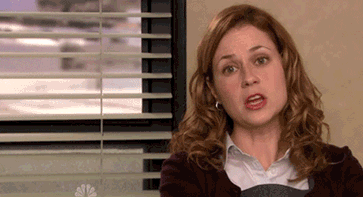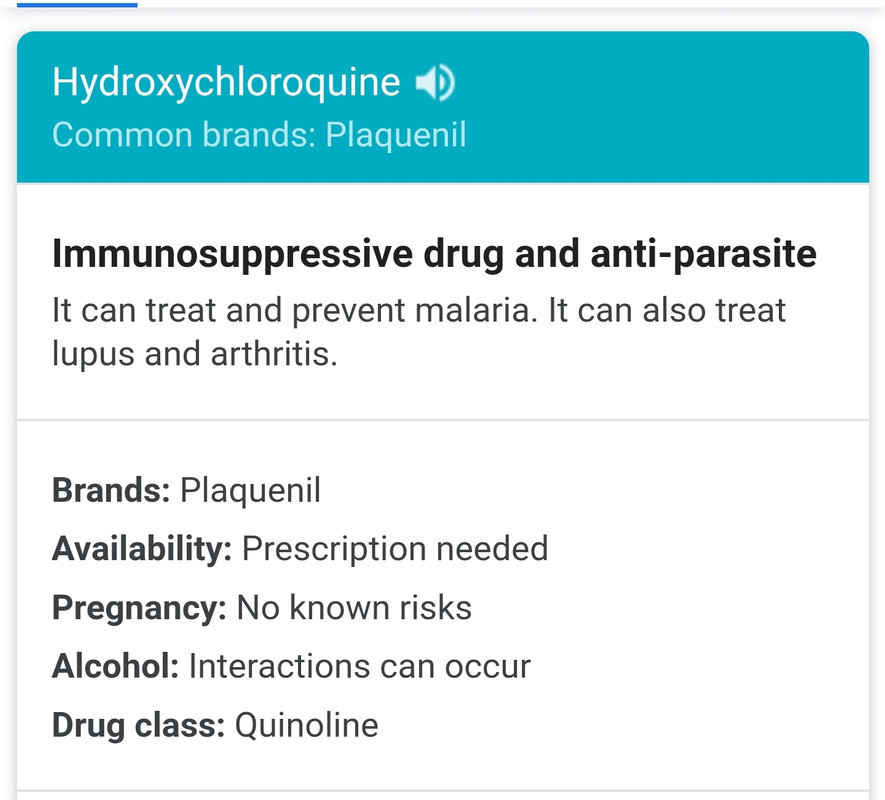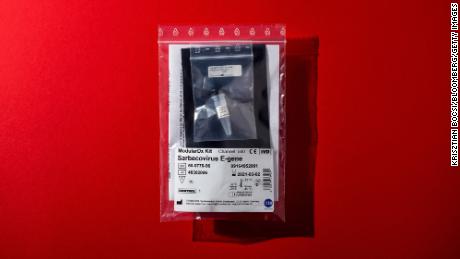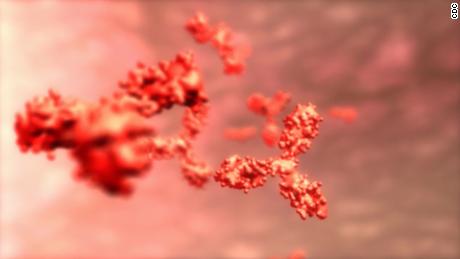You are using an out of date browser. It may not display this or other websites correctly.
You should upgrade or use an alternative browser.
You should upgrade or use an alternative browser.
CORONAVIRUS: HE KNEW; HE LIED; & at Least1,150,427 IN THE USA HAVE DIED - ((NEW VIRUS - NEW WARNINGS !!!))
- Thread starter QueEx
- Start date
The next 2 weeks are going to be 'tough' and 'painful,' Trump warns
President Trump on Tuesday said he wants "every American to be prepared for the hard days that lie ahead," as the coronavirus continues to spread across the United States.
The next two weeks, he added, will be "painful" and "very tough." During the evening press conference, health officials presented slides showing epidemiological models and how social distancing measures can help slow the spread of coronavirus.
In a worst case scenario, even if guidelines are followed, up to 240,000 Americans could still die. Dr. Anthony Fauci, director of the National Institute of Allergy and Infectious Diseases, said that it's important to "brace ourselves," but noted that officials are "continuing to see things go up. We cannot be discouraged by that because the mitigation is actually working and will work."
Source: CNN
.
President Trump on Tuesday said he wants "every American to be prepared for the hard days that lie ahead," as the coronavirus continues to spread across the United States.
The next two weeks, he added, will be "painful" and "very tough." During the evening press conference, health officials presented slides showing epidemiological models and how social distancing measures can help slow the spread of coronavirus.
In a worst case scenario, even if guidelines are followed, up to 240,000 Americans could still die. Dr. Anthony Fauci, director of the National Institute of Allergy and Infectious Diseases, said that it's important to "brace ourselves," but noted that officials are "continuing to see things go up. We cannot be discouraged by that because the mitigation is actually working and will work."
Source: CNN
.
BREAKING: WOW. Trump just ENDED a press conference over a star reporter, Yamiche Alcindor, asking a great question that he REFUSED to answer.
To demand that Trump stop combatting the media and focus on the actual outbreak, sign here https://odaction.com/btc-mediapandemic/
Video by Occupy Democrats host Brian Tyler Cohen.
To demand that Trump stop combatting the media and focus on the actual outbreak, sign here https://odaction.com/btc-mediapandemic/
Video by Occupy Democrats host Brian Tyler Cohen.
Anthony Fauci’s security is stepped up as doctor and face of U.S. coronavirus response receives threats
Anthony Fauci is the public health expert leading us through the coronavirus crisis
0:00 / 4:26
Anthony S. Fauci is one of the leading experts of the coronavirus task force. (Taylor Turner/The Washington Post)
By
Isaac Stanley-Becker,
Yasmeen Abutaleb and
Devlin Barrett
April 1, 2020 at 8:11 p.m. EDT
Anthony S. Fauci, the nation’s top infectious-diseases expert and the face of the U.S. response to the novel coronavirus pandemic, is facing growing threats to his personal safety, prompting the government to step up his security, according to people familiar with the matter.
The concerns include threats as well as unwelcome communications from fervent admirers, according to people with knowledge of deliberations inside the Department of Health and Human Services and the Department of Justice.
Fauci, 79, is the most outspoken member of the administration in favor of sweeping public health guidelines and is among the few officials willing to correct President Trump’s misstatements. Along with Deborah Birx, the coordinator for the White House’s task force, Fauci has encouraged the president to extend the timeline for social-distancing guidelines, presenting him with grim models about the possible toll of the pandemic.
AD
“Now is the time, whenever you’re having an effect, not to take your foot off the accelerator and on the brake, but to just press it down on the accelerator,” he said Tuesday as the White House’s task force made some of those models public, warning of 100,000 to 240,000 deaths in the United States.

The exact nature of the threats against him was not clear. Greater exposure has led to more praise for the doctor but also more criticism.
Fauci has become a public target for some right-wing commentators and bloggers, who exercise influence over parts of the president’s base. As they press for the president to ease restrictions to reinvigorate economic activity, some of these figures have assailed Fauci and questioned his expertise.
Sign up for our Coronavirus Updates newsletter to track the outbreak. All stories linked in the newsletter are free to access.
Last month, an article depicting him as an agent of the “deep state” gained nearly 25,000 interactions on Facebook — meaning likes, comments and shares — as it was posted to large pro-Trump groups with titles such as “Trump Strong” and “Tampa Bay Trump Club.”
AD
Alex Azar, the HHS secretary, recently grew concerned about Fauci’s safety as his profile rose and he endured more vitriolic criticism online, according to people familiar with the situation. In recent weeks, admirers have also approached Fauci, asking to him sign baseballs, along with other acts of adulation. It was determined that Fauci should have a security detail. Azar also has a security detail because he is in the presidential line of succession.
Asked Wednesday whether he was receiving security protection, Fauci told reporters, “I would have to refer you to HHS [inspector general] on that. I wouldn’t comment.”
The president interjected, saying, “He doesn’t need security. Everybody loves him.”
HHS asked the U.S. Marshals Service to deputize a group of agents in the office of the HHS inspector general to provide protective services for the doctor, according to an official with knowledge of the request.
AD
The U.S. Marshals Service conveyed the request to the deputy attorney general, who has authority over deputations for the purpose of providing protective services, with the recommendation that it be approved, according to the official, who spoke on the condition of anonymity to reveal sensitive plans that the person was not authorized to discuss.
A Justice Department official signed paperwork Tuesday authorizing HHS to provide its own security detail to Fauci, according to an administration official.
An HHS spokesperson declined to discuss details of the doctor’s security but said: “Dr. Fauci is an integral part of the U.S. Government’s response against covid-19. Among other efforts, he is leading the development of a covid-19 vaccine and he regularly appears at White House press briefings and media interviews.”
AD
As Trump signals readiness to break with experts, his online base assails Fauci
At the briefings, Fauci, who has advised presidents of both parties as director of the National Institute of Allergy and Infectious Diseases, has spoken authoritatively about the spread of the coronavirus and the sacrifices involved in mitigating its effects.
He has at times corrected the president, in particular when prompted by reporters. After Trump said a covid-19 vaccine would be available in a couple of months, Fauci said it would in fact be available in about a year to a year and a half, at best.
His role has turned him into a hero for some. When he was absent from a briefing last month, followers who had grown accustomed to his frank assessments of the outbreak were alarmed that he might have been sidelined for his forthrightness. Many took to Twitter to ask, “Where is Dr. Fauci?” causing the question to trend on the platform.
AD
He gained viral attention two days later when he placed his hand in front of his face in a gesture of apparent disbelief as Trump referred to the State Department as the “deep state department” from the White House briefing room.
Fauci has also given several interviews in which he has tempered praise for the president with doubts about his pronouncements, including about the viability of anti-malarial drugs as a treatment for the novel coronavirus. Most notably, he told the journal Science that he attempts to guide Trump’s statements but “can’t jump in front of the microphone and push him down.”
These moves have inspired fandom. But they have also drawn scorn from some of the president’s most vocal supporters, even as both men have sought to tamp down the appearance of tension.
“The president was right, and frankly Fauci was wrong,” Lou Dobbs said last week on his show on the Fox Business Network, referring to the use of experimental medicine.
AD
Right-wing news and opinion sites have gone further, launching baseless smears against the doctor that have gained significant traction within pro-Trump communities online.
Outlets such as the Gateway Pundit and American Thinker seized on a 2013 email — released by WikiLeaks as part of a cache of communications hacked by Russian operatives — in which Fauci praised Hillary Clinton’s “stamina and capability” during her testimony as secretary of state before the congressional committee investigating the attacks in Benghazi, Libya.
The headline in the American Thinker referred to Fauci as a “Deep-State Hillary Clinton-loving stooge.” The author, Peter Barry Chowka, didn’t respond to requests for comment. When asked about the relevance of Fauci’s emails to his role in advising the White House’s coronavirus response, Jim Hoft, the editor of the Gateway Pundit, said, “I don’t have a problem with more information being shared about the doctor.”
AD
The outlet has continued to criticize Fauci in recent days, saying that by offering new predictions about the possible death toll, Fauci and others were “going to destroy the U.S. economy based on total guesses and hysterical predictions.”
Several senior administration officials said that Trump respects Fauci and that the two generally have a good working relationship. Trump heeded the guidance of Fauci and Birx this week when he announced his administration would extend social-distancing guidelines for another 30 days. Last week, many health officials and experts grew worried when Trump said he hoped to reopen the country by Easter, even as coronavirus cases in the United States continue to rapidly climb.
The immunologist, who graduated first in his class from Cornell’s medical school, has been the director of the National Institute of Allergy and Infectious Diseases since 1984. Between 1983 and 2002, he was the 13th-most-cited scientist among the 2.5 million to 3 million authors worldwide and across all disciplines publishing in scientific journals, according to the Institute for Scientific Information.
I am getting pounded with surveillance like I have never seen before. Things I post on here goes global and some country implements it immediately.
Is it moral to make money off of this disaster?
Is it moral to make money off of this disaster?
I put this bait post up, putting international on it, had some Nazi news organization chase after me with that same crazed look with Russell Simmons leading to the terrorist act passenger plane crash.
I need a 3000 mile social distance from you, stay away.
I need a 3000 mile social distance from you, stay away.
Patriots Plane Makes EMERGENCY Trip To China
This retarded...
Muthafuckin hardware store in new york city
Selling a five dollar bottle of purell for damn near eighty dollars
Fuckin lysol must be on the fuckin stock exchange now
Cant find a can anywhere not even on fucking walmart.com
I only checked a new jersey location tho

USA TODAY
·
In the absence of action from the Trump administration, firms kept exporting masks, ventilators and other life-saving gear overseas U.S. hospitals fighting coronavirus now need. Export data reviewed by USA TODAY shows a big spike in February shipments. https://bit.ly/2R98pCD
Use our simple template to make a face mask at home: A step-by-step guide
by Jonathan Lai,
Updated: April 5, 2020
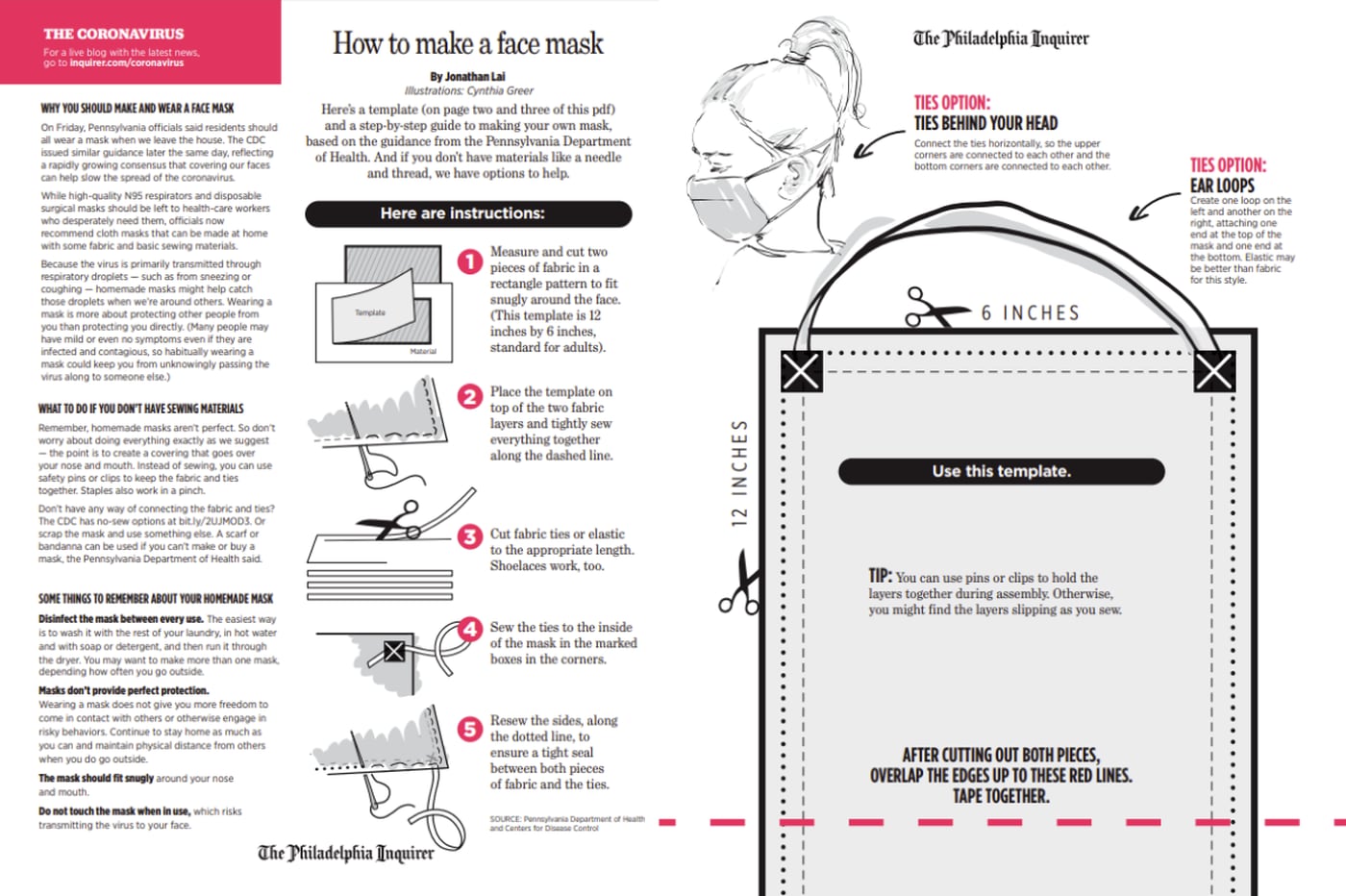
We have a template to help
Here’s a PDF of our template. Print it out — make sure to print it at 100% scale on letter-size paper — and use it to help as you make the mask.
» Download our template here.
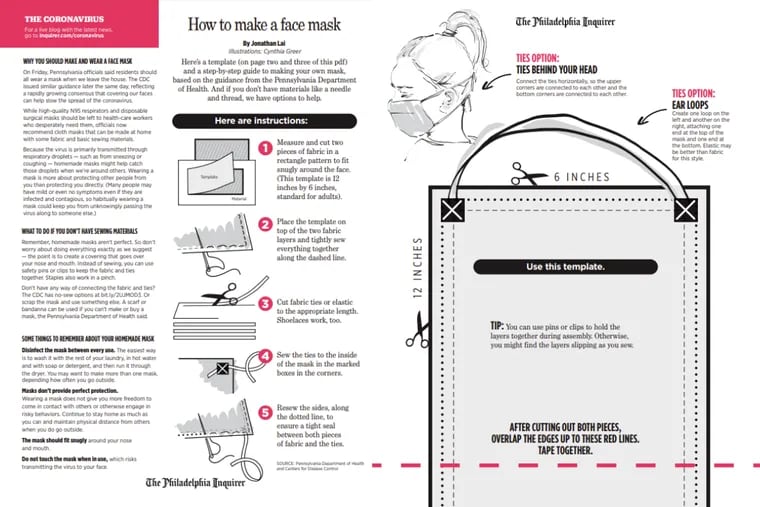
 www.inquirer.com
www.inquirer.com
.
by Jonathan Lai,
Updated: April 5, 2020

We have a template to help
Here’s a PDF of our template. Print it out — make sure to print it at 100% scale on letter-size paper — and use it to help as you make the mask.
» Download our template here.

Use our face mask template to make a fabric mask at home
Our template can help you make a face mask to wear when you go out in public, as state and federal officials now recommend.
.
More Than 700 Employees At A Detroit Hospital Tested Positive For Coronavirus
More than 700 employees at Henry Ford Hospital in Detroit have tested positive for coronavirus the hospital’s chief clinical officer said Monday.

More than 700 employees at Henry Ford Hospital in Detroit have tested positive for coronavirus, the hospital’s chief clinical officer said Monday.
According to International Business Times, 2,500 employees at the hospital have been tested for coronavirus and 734 tests came back positive. The number accounts for just over 2% of the hospitals 31,600 employees.
Dr. Adnan Munkarah, the chief clinical officer at the hospital, said further testing will likely lead to more positive cases among the employees.
“If we are to test the whole population, you are going to see large numbers of people who are testing positive,” Munkarah said in a press conference. “Testing positive is just a measure of how contagious this virus is.”
The hospital did not release who tested positive, their designation, how many of them are still working, how many are in quarantine or how many have died. Munkarah said privacy issues have halted the release of information.
“Our team members are our greatest asset and their health and safety is a top priority as we continue to respond to this pandemic,” Munkarah said. “We know we are not immune to potential exposure and we remain grateful for the courage and dedication of our entire team.”
The hospital has been overrun with cases in recent days as Michigan has moved to third in coronavirus cases behind New York and New Jersey. As many as 5,023 Detroit residents have tested positive for the coronavirus as of Monday, with 193 deaths. More than 17,000 Michigan residents in total have been infected with the coronavirus as of Monday and 727 have died, according to the data released by Michigan Department of Health and Human Services.
Dr. Anthony Fauci, director of the National Institute of Allergy and Infectious Diseases acknowledged Monday that the coronavirus is significantly affecting African Americans due to low-wage jobs, a lack of quality healthcare, and existing health disparities.
“We are very concerned about that. It is very sad. There is nothing we can do about it right now except to give them the best possible care to avoid complications,” Fauci said Monday.
Detroit’s population, which is 70% African American, currently has a higher death rate than New York City. African Americans are less likely to telecommute and more likely to work in low-wage positions forcing them outside daily.
I wrote about this happening early on with China. Here is where the problems lies for us, these people leave work and get in cabs or subways to get home. All of the HCW need to be quarantined and isolated. This is why the disease spread in China which they tried to hide.
Doctors say that COVID19 will become a seasonal disease.
And a pandemic will end only when more than 50% of the representatives of society will have immunity. Or through a disease or through vaccination.
Different countries will go to this in different ways. But the faster immunity is formed in most citizens, the earlier the economy will be restored.
The US goes this way, hoping to minimize losses. By autumn, the formation of the immune layer will be completed.
The country has a resource for this.
China will go the other way - they will start the industry now, but they will introduce total control of the incidence before the invention of the vaccine.
They have a resource for this.
Europe will be tormented slowly and for a long time. And the industry will not be launched, and the immune layer will form for a very long time.
 freeadultpornlist.com
freeadultpornlist.com
And a pandemic will end only when more than 50% of the representatives of society will have immunity. Or through a disease or through vaccination.
Different countries will go to this in different ways. But the faster immunity is formed in most citizens, the earlier the economy will be restored.
The US goes this way, hoping to minimize losses. By autumn, the formation of the immune layer will be completed.
The country has a resource for this.
China will go the other way - they will start the industry now, but they will introduce total control of the incidence before the invention of the vaccine.
They have a resource for this.
Europe will be tormented slowly and for a long time. And the industry will not be launched, and the immune layer will form for a very long time.
Free Adult Porn List – ultimate list of best porn websites
Last edited:
Report:
Covid-19 patients recovering quickly after getting experimental drug remdesivir

Covid-19 patients who are getting an experimental drug called
remdesivir have been recovering quickly, with most going home
in days, STAT News reported Thursday after it obtained a video
of a conversation about the trial. Ulrich Perrey/Pool/AFP
CNN
By Maggie Fox
April 17, 2020
(CNN) - Covid-19 patients who are getting an experimental drug called remdesivir have been recovering quickly, with most going home in days, STAT News reported Thursday after it obtained a video of a conversation about the trial.
The patients taking part in a clinical trial of the drug have all had severe respiratory symptoms and fever, but were able to leave the hospital after less than a week of treatment, STAT quoted the doctor leading the trial as saying.
"The best news is that most of our patients have already been discharged, which is great. We've only had two patients perish," Dr. Kathleen Mullane, an infectious disease specialist at the University of Chicago who is leading the clinical trial, said in the video.
Mullane did not immediately respond to a request for comment from CNN. The university said it would comment once the official results of the trial were ready.
There is no approved therapy for the Covid-19, which can cause severe pneumonia and acute respiratory distress syndrome in some patients. But the National Institutes of Health is organizing trials of several drugs and other treatments, among them remdesivir.
The drug, made by Gilead Sciences, was tested against Ebola with little success, but multiple studies in animals showed the drug could both prevent and treat coronaviruses related to Covid-19, including SARS (Severe Acute Respiratory Syndrome) and MERS (Middle East Respiratory Syndrome).
Back in February, the World Health Organization said remdesivir showed potential against Covid-19.
STAT said it obtained and viewed a copy of the video discussion Mullane had last week with colleagues about the trial.
"Most of our patients are severe and most of them are leaving at six days, so that tells us duration of therapy doesn't have to be 10 days," she was quoted as saying.
However, the trial does not include what's known as a control group, so it will be difficult to say whether the drug is truly helping patients recover better. With a control arm, some patients do not receive the drug being tested so that doctors can determine whether it's the drug that is really affecting their condition.
Trials of the drug are ongoing at dozens of other clinical centers, as well. Gilead is sponsoring tests of the drug in 2,400 patients with severe Covid-19 symptoms in 152 trial sites around the world. It's also testing the drug in 1,600 patients with moderate symptoms at 169 hospitals and clinics around the world.
Gilead said it expected results from the trial by the end of the month.
"We understand the urgent need for a COVID-19 treatment and the resulting interest in data on our investigational antiviral drug remdesivir," the company said in a statement to CNN. But it said a few stories about patients are just that -- stories.
"The totality of the data need to be analyzed in order to draw any conclusions from the trial. Anecdotal reports, while encouraging, do not provide the statistical power necessary to determine the safety and efficacy profile of remdesivir as a treatment for Covid-19," Gilead said.

 www.wfsb.com
www.wfsb.com
.
Covid-19 patients recovering quickly after getting experimental drug remdesivir

Covid-19 patients who are getting an experimental drug called
remdesivir have been recovering quickly, with most going home
in days, STAT News reported Thursday after it obtained a video
of a conversation about the trial. Ulrich Perrey/Pool/AFP
CNN
By Maggie Fox
April 17, 2020
(CNN) - Covid-19 patients who are getting an experimental drug called remdesivir have been recovering quickly, with most going home in days, STAT News reported Thursday after it obtained a video of a conversation about the trial.
The patients taking part in a clinical trial of the drug have all had severe respiratory symptoms and fever, but were able to leave the hospital after less than a week of treatment, STAT quoted the doctor leading the trial as saying.
"The best news is that most of our patients have already been discharged, which is great. We've only had two patients perish," Dr. Kathleen Mullane, an infectious disease specialist at the University of Chicago who is leading the clinical trial, said in the video.
Mullane did not immediately respond to a request for comment from CNN. The university said it would comment once the official results of the trial were ready.
There is no approved therapy for the Covid-19, which can cause severe pneumonia and acute respiratory distress syndrome in some patients. But the National Institutes of Health is organizing trials of several drugs and other treatments, among them remdesivir.
The drug, made by Gilead Sciences, was tested against Ebola with little success, but multiple studies in animals showed the drug could both prevent and treat coronaviruses related to Covid-19, including SARS (Severe Acute Respiratory Syndrome) and MERS (Middle East Respiratory Syndrome).
Back in February, the World Health Organization said remdesivir showed potential against Covid-19.
STAT said it obtained and viewed a copy of the video discussion Mullane had last week with colleagues about the trial.
"Most of our patients are severe and most of them are leaving at six days, so that tells us duration of therapy doesn't have to be 10 days," she was quoted as saying.
However, the trial does not include what's known as a control group, so it will be difficult to say whether the drug is truly helping patients recover better. With a control arm, some patients do not receive the drug being tested so that doctors can determine whether it's the drug that is really affecting their condition.
Trials of the drug are ongoing at dozens of other clinical centers, as well. Gilead is sponsoring tests of the drug in 2,400 patients with severe Covid-19 symptoms in 152 trial sites around the world. It's also testing the drug in 1,600 patients with moderate symptoms at 169 hospitals and clinics around the world.
Gilead said it expected results from the trial by the end of the month.
"We understand the urgent need for a COVID-19 treatment and the resulting interest in data on our investigational antiviral drug remdesivir," the company said in a statement to CNN. But it said a few stories about patients are just that -- stories.
"The totality of the data need to be analyzed in order to draw any conclusions from the trial. Anecdotal reports, while encouraging, do not provide the statistical power necessary to determine the safety and efficacy profile of remdesivir as a treatment for Covid-19," Gilead said.

Report: Covid-19 patients recovering quickly after getting experimental drug remdesivir
Covid-19 patients who are getting an experimental drug called remdesivir have been recovering quickly, with most going home in days, STAT News reported Thursday after it obtained a video of
.
EVERY WORD of this is , especially the very end!!!
Recovered coronavirus patients are testing positive again. Can you get reinfected?
CNN
By Paula Hancocks,
Yoonjung Seo and
Julia
Hollingsworth
Sat April 18, 2020
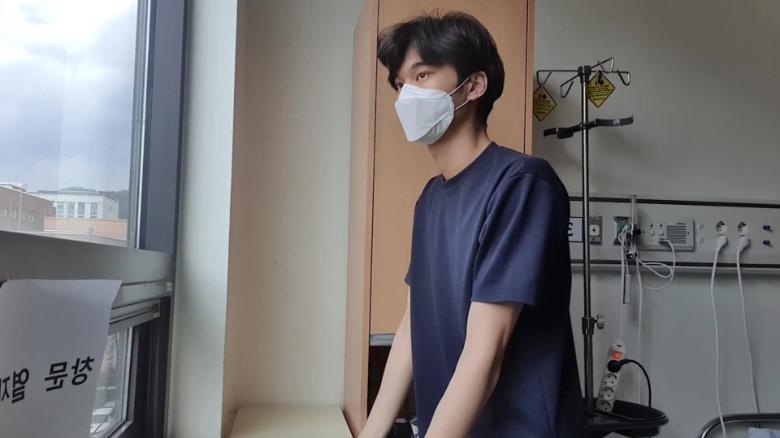
Four possible reasons people are retesting Covid-19 positive
Seoul (CNN)In South Korea, health officials are trying to solve a mystery: why 163 people who recovered from coronavirus have retested positive, according to the Korea Centers for Disease Control and Prevention (KCDC).
The same has been recorded in China, where some coronavirus patients tested positive after seeming to recover, although there are no official figures.
That raises the question: can you get reinfected with coronavirus?
In South Korea, the proportion of cases that retest positive is low -- of the 7,829 people who have recovered from coronavirus there, 2.1% retested positive, the KCDC said Friday. It is not clear how many of the people who have recovered have been tested again.
But patients retesting positive is still a concern around the world, including in countries like South Korea where authorities appear to have brought the outbreak under control.
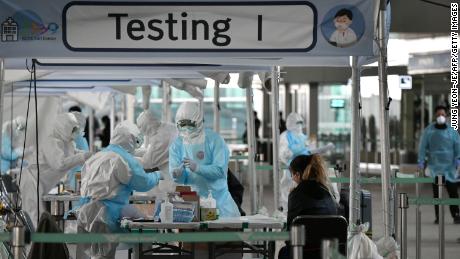
But he cautioned there is still a lot scientists don't know about the virus, including the issue of naturally acquired immunity.
"Covid-19 is the most challenging pathogen we may have faced in recent decades," Kwon said. "It is a very difficult and challenging enemy."
Finding remnants of the virus?
For now, the most likely explanation of why people are retesting positive seems to be that the test is picking up remnants of the virus.
The KCDC has re-investigated three cases from the same family where patients tested positive after recovering, Kwon says.
In each of these cases, scientists tried to incubate the virus but weren't able to -- that told them there was no live virus present.
Like many countries, South Korea uses a reverse transcription polymerase chain reaction (RT-PCR) to test for the virus. The RT-PCR test works by finding evidence of a virus's genetic information -- or RNA -- in a sample taken from the patient.
According to Kwon, these tests may still be picking up parts of the RNA even after the person has recovered because the tests are so sensitive.
"That's one possible and very strong explanation," he said.
The same theory was posited by one of China's top respiratory experts, Zhong Nanshan. In a press conference earlier this week, he said that a recovered person can test positive because fragments of the disease remained in their body.
"I'm not too worried about this issue," he added.
What are some of the other explanations?
There are other theories for why patients may be retesting positive: there might be an error with the test, or the virus could have been reactivated.
If there's an error with the test, patients may be getting false negatives or false positives. There are a number of reasons why this could happen, including issues with the chemicals used in the test and the possibility that the virus is mutating in such a way that it is not being identified by the test.
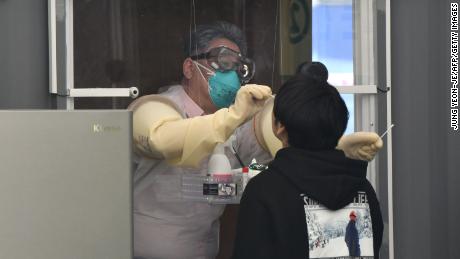
A medical staff member in a booth takes samples from a visitor for the Covid-19 coronavirus test at a walk-thru testing station set up at Jamsil Sports Complex in Seoul on April 3, 2020.
In a public briefing, Kwon said it was unlikely testing would have errors. However, he said scientists have been screening patients who tested positive again, to make sure that their positive result wasn't just an issue with the test. "We need more further investigation," he added.
For now, the KCDC is investigating the remaining cases to get a more conclusive answer.
The changing results can be frustrating for patients.
Jin Kim, who is hospitalized in the South Korean city of Daejeon, tested positive for coronavirus on March 25 -- this week he tested negative, but a day later he tested positive again. The 25-year-old will have to take another two tests at least, as he needs two consecutive negative tests to be declared recovered.
Once he's discharged from hospital, the government recommends he isolates for two weeks.
Can a person who has retested positive infect others?
Kwon says there is no evidence so far of a person who has retested positive being infectious, adding: "At the moment, we think that there is no danger of further secondary or tertiary transmission.
That's also a concern weighing on the minds of people in the US.
Responding to a question about patients retesting positive at the CNN Town Hall on Thursday night, Dr. Deborah Birx, the White House coronavirus response coordinator, said the jury was still out on whether a person who had recovered could still shed infectious RNA strands.
"That's a question that's still outstanding -- it hasn't been answered in the studies to date, although people are really working on that now and culturing the virus and seeing if that potential exists," she added.
After coronavirus patients are declared recovered, the KCDC recomends two more weeks of self-isolation. In an article published in BMJ medical journal this week, Sung-Il Cho, a professor of epidemiology at the Seoul National University Graduate School of Public Health, also advised discharged patients to remain isolated or quarantined for a while to make sure there's no re-detection of the virus.
What does this mean for antibodies?
When a person is recovering from a virus, their body produces antibodies. Antibodies are important because they can prevent a person from being reinfected with the same virus, as the body already knows how to fight the disease.
The number of recovered patients who have retested positive for the virus has raised concerns about how antibodies work in response to Covid-19.
When asked Thursday whether it was possible for someone to get reinfected, Birx replied: "In biology, you never want to say that that's not possible."
She said they had seen coronavirus patients appear to recover and develop antibodies, but there was always the possibility of outliers who did not develop antibodies to the virus. "Those outliers always exist, but right now we don't have (any) evidence that that's a common thing that we see," she said.
The KCDC plans to test 400 specimens from people who have been infected and recovered to see how much -- if any -- immunity having Covid-19 might give people. Kwon says those tests may take several weeks.
In the end, Kwon said, it comes down to this: "We don't know much about Covid-19."
CNN's Shawn Deng and Jake Kwon contributed to this report.
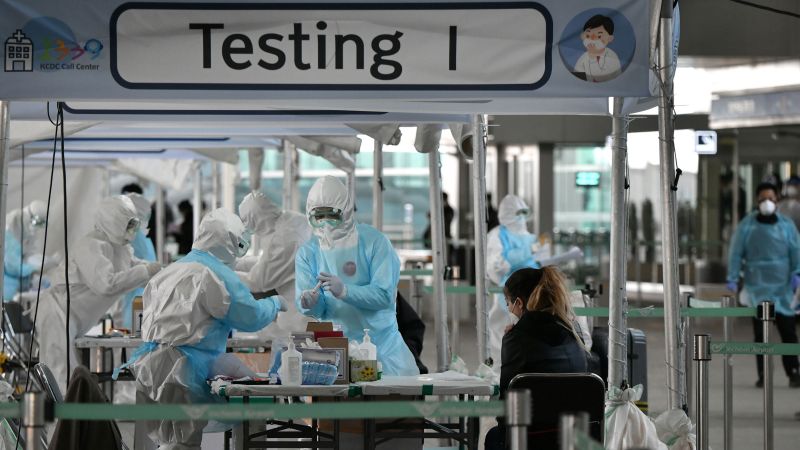
 www.cnn.com
www.cnn.com
CNN
By Paula Hancocks,
Yoonjung Seo and
Julia
Hollingsworth
Sat April 18, 2020

Four possible reasons people are retesting Covid-19 positive
Seoul (CNN)In South Korea, health officials are trying to solve a mystery: why 163 people who recovered from coronavirus have retested positive, according to the Korea Centers for Disease Control and Prevention (KCDC).
The same has been recorded in China, where some coronavirus patients tested positive after seeming to recover, although there are no official figures.
That raises the question: can you get reinfected with coronavirus?
In South Korea, the proportion of cases that retest positive is low -- of the 7,829 people who have recovered from coronavirus there, 2.1% retested positive, the KCDC said Friday. It is not clear how many of the people who have recovered have been tested again.
But patients retesting positive is still a concern around the world, including in countries like South Korea where authorities appear to have brought the outbreak under control.

Medical staff wearing protective clothing take test samples for the Covid-19 coronavirus from a foreign passenger at a virus testing booth outside Incheon international airport, west of Seoul, on April 1, 2020.
KCDC deputy director Kwon Joon-wook said that so far, there's no indication that patients who retest positive are contagious, even though about 44% of them showed mild symptoms.But he cautioned there is still a lot scientists don't know about the virus, including the issue of naturally acquired immunity.
"Covid-19 is the most challenging pathogen we may have faced in recent decades," Kwon said. "It is a very difficult and challenging enemy."
Finding remnants of the virus?
For now, the most likely explanation of why people are retesting positive seems to be that the test is picking up remnants of the virus.
The KCDC has re-investigated three cases from the same family where patients tested positive after recovering, Kwon says.
In each of these cases, scientists tried to incubate the virus but weren't able to -- that told them there was no live virus present.
Like many countries, South Korea uses a reverse transcription polymerase chain reaction (RT-PCR) to test for the virus. The RT-PCR test works by finding evidence of a virus's genetic information -- or RNA -- in a sample taken from the patient.
According to Kwon, these tests may still be picking up parts of the RNA even after the person has recovered because the tests are so sensitive.
"That's one possible and very strong explanation," he said.
The same theory was posited by one of China's top respiratory experts, Zhong Nanshan. In a press conference earlier this week, he said that a recovered person can test positive because fragments of the disease remained in their body.
"I'm not too worried about this issue," he added.
What are some of the other explanations?
There are other theories for why patients may be retesting positive: there might be an error with the test, or the virus could have been reactivated.
If there's an error with the test, patients may be getting false negatives or false positives. There are a number of reasons why this could happen, including issues with the chemicals used in the test and the possibility that the virus is mutating in such a way that it is not being identified by the test.

A medical staff member in a booth takes samples from a visitor for the Covid-19 coronavirus test at a walk-thru testing station set up at Jamsil Sports Complex in Seoul on April 3, 2020.
In a public briefing, Kwon said it was unlikely testing would have errors. However, he said scientists have been screening patients who tested positive again, to make sure that their positive result wasn't just an issue with the test. "We need more further investigation," he added.
For now, the KCDC is investigating the remaining cases to get a more conclusive answer.
The changing results can be frustrating for patients.
Jin Kim, who is hospitalized in the South Korean city of Daejeon, tested positive for coronavirus on March 25 -- this week he tested negative, but a day later he tested positive again. The 25-year-old will have to take another two tests at least, as he needs two consecutive negative tests to be declared recovered.
Once he's discharged from hospital, the government recommends he isolates for two weeks.
Can a person who has retested positive infect others?
Kwon says there is no evidence so far of a person who has retested positive being infectious, adding: "At the moment, we think that there is no danger of further secondary or tertiary transmission.
That's also a concern weighing on the minds of people in the US.
Responding to a question about patients retesting positive at the CNN Town Hall on Thursday night, Dr. Deborah Birx, the White House coronavirus response coordinator, said the jury was still out on whether a person who had recovered could still shed infectious RNA strands.
"That's a question that's still outstanding -- it hasn't been answered in the studies to date, although people are really working on that now and culturing the virus and seeing if that potential exists," she added.
After coronavirus patients are declared recovered, the KCDC recomends two more weeks of self-isolation. In an article published in BMJ medical journal this week, Sung-Il Cho, a professor of epidemiology at the Seoul National University Graduate School of Public Health, also advised discharged patients to remain isolated or quarantined for a while to make sure there's no re-detection of the virus.
What does this mean for antibodies?
When a person is recovering from a virus, their body produces antibodies. Antibodies are important because they can prevent a person from being reinfected with the same virus, as the body already knows how to fight the disease.
The number of recovered patients who have retested positive for the virus has raised concerns about how antibodies work in response to Covid-19.
When asked Thursday whether it was possible for someone to get reinfected, Birx replied: "In biology, you never want to say that that's not possible."
She said they had seen coronavirus patients appear to recover and develop antibodies, but there was always the possibility of outliers who did not develop antibodies to the virus. "Those outliers always exist, but right now we don't have (any) evidence that that's a common thing that we see," she said.
The KCDC plans to test 400 specimens from people who have been infected and recovered to see how much -- if any -- immunity having Covid-19 might give people. Kwon says those tests may take several weeks.
In the end, Kwon said, it comes down to this: "We don't know much about Covid-19."
CNN's Shawn Deng and Jake Kwon contributed to this report.

Recovered coronavirus patients are testing positive again. Can you get reinfected? | CNN
In South Korea, health officials are trying to solve a mystery: why 163 people who recovered from coronavirus have retested positive, according to the Korea Centers for Disease Control and Prevention (KCDC).
Fauci warns protesters about dangers of ending lockdowns prematurely
Dr. Anthony Fauci on Monday warned about the dangers of reopening the United States too quickly in a message to those protesting stay-at-home orders.
Fauci, head of the National Institute of Allergy and Infectious Diseases and member of President Trump's coronavirus task force, appeared on Good Morning America on Monday after protests in some cities against stay-at-home orders.
Polls, however, have found that more Americans are worried about restrictions being loosened too soon than not soon enough.
"Unless we get the virus under control, the real recovery, economically, is not going to happen," Fauci said, stressing the importance of a gradual reopening. "If you jump the gun, and go into a situation where you have a big spike, you're going to set yourself back," he said.
Source: Good Morning America
Dr. Anthony Fauci on Monday warned about the dangers of reopening the United States too quickly in a message to those protesting stay-at-home orders.
Fauci, head of the National Institute of Allergy and Infectious Diseases and member of President Trump's coronavirus task force, appeared on Good Morning America on Monday after protests in some cities against stay-at-home orders.
Polls, however, have found that more Americans are worried about restrictions being loosened too soon than not soon enough.
"Unless we get the virus under control, the real recovery, economically, is not going to happen," Fauci said, stressing the importance of a gradual reopening. "If you jump the gun, and go into a situation where you have a big spike, you're going to set yourself back," he said.
Source: Good Morning America
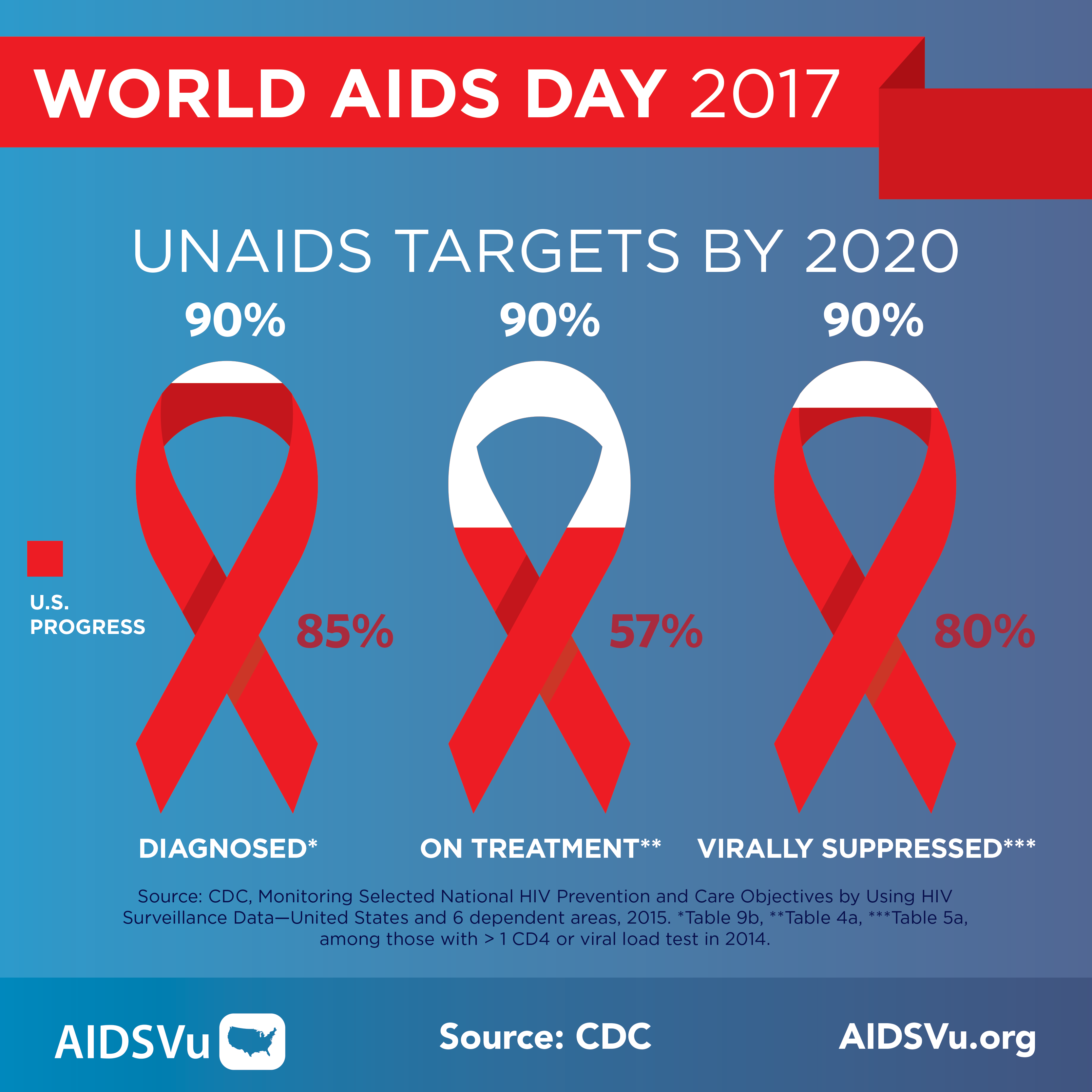
I have been studying the AIDS epidemic in African, looking for any patterns that would apply today.
Plan 1
AIDS in Africa is direct evidence of biowarfare, first they released it claiming monkeys and apes were spreading it to humans through bush meat. In their sick mind they were calling you a monkey and here is our bio weapon.
Plan 2
Release antiretroviral drugs to alay conern and panic, prevent you from enacting strict controls and measures to dampen the spread. This had you patiently waiting for a vaccine that will never happen. Meanwhile the antiretroviral drugs are causing the virus to become resistant which will spread through the population again like wildfire. Your population slowly increases in infection rates but because people are living normal lives, you take no measures to control the spread of AIDS.
They are trying to do this with COVID claiming some anti-malaria drug is a miracle cure; however, it will make this virus more deadly down the road. We need vaccines that work, otherwise we are enacting strick measures to control the spread.
Coronavirus Entered My Father’s Nursing Home
and Nobody Warned Me.
I Did Not Get the Chance to Save Him.
Reporter Jan Ransom’s father was the fourth resident of his nursing home to get COVID-19. Nobody told her about the first, so she couldn’t move him before he got sick. “I think that’s very unfair,” her father told her a week before he died.
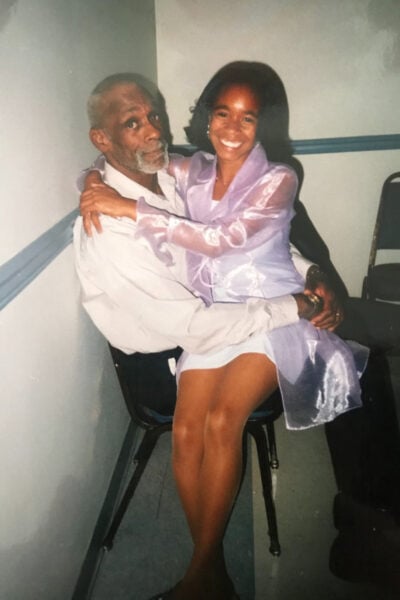
The author and her father in 2002. (Courtesy of Jan
Ransom)
By Jan Ransom
for ProPublica
April 21, 2020
The call came around 9 a.m. on March 25. It was my father.
“I’m not doing too good,” he said in between gasps for air. I asked him what was wrong. “I’m coughing up blood,” he said, adding that the medical staff at the nursing home in the Bronx where he lived wanted to send him to a nearby hospital.
My father, 75, had chronic obstructive pulmonary disease (COPD), a crippling illness that causes severe breathing difficulty and can lead to death. He had lived in nursing homes since 2017 after X-rays showed his lungs had badly deteriorated.
“Do we really have to send him to the hospital?” I asked a nursing supervisor over the phone. I worried about my father, already in poor health, waiting in an emergency room full of patients infected with the coronavirus.
What I did not know was that he already had the virus. Shortly after being admitted to the hospital, he tested positive for COVID-19. Hours later, I called the nursing home to alert the staff. A nursing home staffer told me that my father was not the first resident to test positive. He was the fourth. I was stunned.
I’m a reporter for The New York Times and have been covering the pandemic’s impact on New York City jails, including Rikers Island, and the state’s prison system.
Other journalists at the Times and elsewhere have been writing about the toll the virus was taking on nursing homes, killing hundreds of residents and infecting thousands more. As I read those harrowing stories, my dad was never far from my thoughts.
After realizing my dad’s nursing home had left me in the dark, I started to make some calls. I thought about my father’s roommate and the families of other residents at the facility who were unaware of the storm brewing inside.
I was certain I should have been alerted that the virus had been detected in the home they shared. I was wrong.
When I called the state Department of Health to complain on my family’s behalf, I was informed that nursing homes in New York — the epicenter of the crisis in the United States — were not obligated to tell families when the virus is detected in other residents.
“Guidelines require nursing home operators to notify a resident’s family of illness, they do not require notification to relatives of other residents,” a Department of Health spokesman later said in a statement.
That left me even more puzzled, and not just as a daughter but as a journalist. So I emailed the state asking if the agency was weighing whether to change the policy in response to the growing crisis.
A day later the policy had changed. The Department of Health is now directing nursing home officials to tell residents and families within 24 hours of learning of a suspected COVID-19 case.
More than 6,470 nursing home residents in New York have tested positive for the coronavirus, according to the state Department of Health. The disease had killed 42% of infected nursing home residents as of Friday. The outbreak has now spread to 354 of the 613 licensed nursing homes in New York and, and in hot spots from New Jersey to Seattle, nursing home residents have been especially hard hit.
Last week, the Centers for Disease Control and Prevention announced that nursing home providers will soon be required to report potential infectious disease outbreaks not only to state health departments but directly to federal health officials to accelerate efforts to contain outbreaks.
But the revised New York state guidelines came too late for my family, and for many others. My father died on April 9, due to complications from the virus, 15 days after he was admitted to the hospital.
The lack of notification deprived us of the chance to move my father out of the nursing home before he got sick. “I think that’s very unfair,” my father said more than a week before he died. “They have no consideration — in other words you’re just cattle. It goes to show a great indifference.”
My experience was not unique. My colleagues at the Times have reported that several other families said nursing homes did not tell them when a resident tested positive or what steps the homes were taking to prevent the virus from spreading. Outside of New York state, families are raising similar alarms and demanding the release of better information by governments and facilities. In recent days, Florida and California began releasing information on which nursing homes have outbreaks.
Indeed, it was only by chance that I learned my father was not the first resident at his nursing home to test positive. When I called to update the home about his test results, a staffer asked how he was doing. I sighed and told the staffer he had tested positive for coronavirus. To my surprise, the staffer said that there were others and that the facility had been slow to quarantine floors. My heart dropped. How could this have happened?
On March 12, I had received a robocall letting me know that all medically nonessential visits to the facility had been suspended, but reassuring us that there were no cases in the facility. My father started hearing rumors from staff and residents that the virus had quietly seeped into the nursing home. One staffer told him that another staffer had fallen sick and could not work, and residents spoke about another resident who was hospitalized.
My father said he and some of the other residents were still being allowed to move around the nursing home without masks and were never warned that the virus had entered the 159-bed facility.
And while my father had symptoms of the disease — a persistent dry cough, diarrhea, fever, headaches and body aches — no one at the home, including the doctor who called to follow up with me about his persistent cough, told him or me that they suspected he might have the virus.
On March 18, I received another reassuring robocall from the nursing home. “We continue to take stringent precautions in ensuring that your loved ones remain safe,” the automated call stated. “To date, we do not have any presumed or positive cases in any of our facilities and will continue to provide you with relevant updates as they become available.”
On March 23, I emailed Aharon Wolf, the administrator of my father’s facility, Hudson Pointe at Riverdale Center for Nursing and Rehabilitation in the Bronx, asking for an update and whether the virus had made its way there. I did not get a response. Two days later my father was hospitalized and the next day tested positive for COVID-19.
After I learned my father was the fourth resident to test positive, I immediately called Wolf.
He explained that three residents had tested positive for the virus at a hospital before my father was hospitalized. A staff member at the home had also tested positive around the same time, he told me. He said that infected residents had been transferred to hospitals and were no longer in the nursing home.
It was a day after I received my father’s positive test result that a staffer finally left a voicemail message to inform me that the virus was in the nursing home. Then, three days before my father died, I received another robocall from the facility stating that some residents had tested positive for COVID-19.
When I called Wolf back while reporting this story, he told me relatives were being updated and that notifying 150 families takes time.
My father fought hard to beat the virus. His condition changed every few days. At first he was stable, and then his symptoms worsened. At one point, his blood pressure dropped, and his breathing became labored.
The other times he was hospitalized with complications from his lung disease, I would drop by his hospital room after work with a hamburger and a smile. I would hug him, rub his mostly bald head and encourage him to hang in there.
This time was different. I could only talk to him over a video chat app. This virus has made it unsafe to visit our infected and dying loved ones in the hospital, leaving them isolated and alone.
I tried to keep his spirits high, reminding him he was a fighter. I played for him the songs he loved and that I grew up listening to: “Cruisin’” by Smokey Robinson and “Lovely Day” by Bill Withers.
When he had the energy, we chatted and I blew him kisses over the phone. “Hey, big guy,” I’d say, to my dad, who was 6-foot-7. My father, whose name I share, was a retired Metropolitan Transportation Authority employee who had spent much of his time there doing trackwork and swore that he had the answers to fixing the beleaguered subway system. (The transit authority has suffered its own losses, with more than 50 MTA workers killed by the virus.)
Sometimes he griped about the hospital food — it was too cold, he said, or they were served chicken for dinner, again.
__________________________________
Jan Ransom is a reporter for The New York Times covering criminal courts and jails in New York City. She is also a native New Yorker.
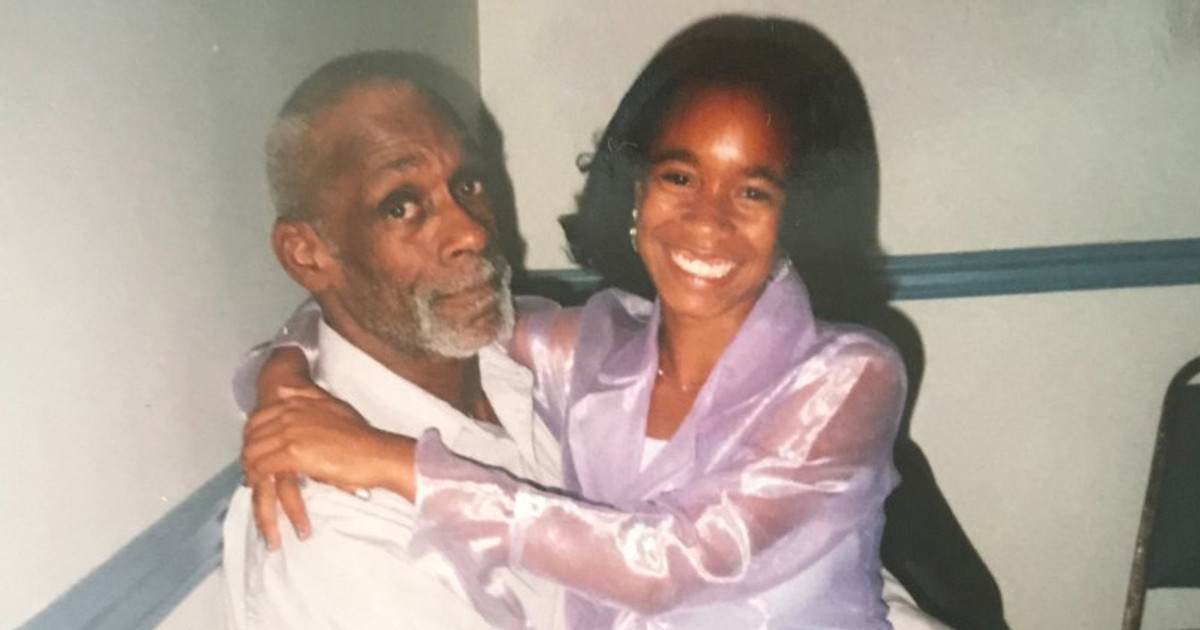
 www.propublica.org
www.propublica.org
.
and Nobody Warned Me.
I Did Not Get the Chance to Save Him.
Reporter Jan Ransom’s father was the fourth resident of his nursing home to get COVID-19. Nobody told her about the first, so she couldn’t move him before he got sick. “I think that’s very unfair,” her father told her a week before he died.

The author and her father in 2002. (Courtesy of Jan
Ransom)
By Jan Ransom
for ProPublica
April 21, 2020
The call came around 9 a.m. on March 25. It was my father.
“I’m not doing too good,” he said in between gasps for air. I asked him what was wrong. “I’m coughing up blood,” he said, adding that the medical staff at the nursing home in the Bronx where he lived wanted to send him to a nearby hospital.
My father, 75, had chronic obstructive pulmonary disease (COPD), a crippling illness that causes severe breathing difficulty and can lead to death. He had lived in nursing homes since 2017 after X-rays showed his lungs had badly deteriorated.
“Do we really have to send him to the hospital?” I asked a nursing supervisor over the phone. I worried about my father, already in poor health, waiting in an emergency room full of patients infected with the coronavirus.
What I did not know was that he already had the virus. Shortly after being admitted to the hospital, he tested positive for COVID-19. Hours later, I called the nursing home to alert the staff. A nursing home staffer told me that my father was not the first resident to test positive. He was the fourth. I was stunned.
I’m a reporter for The New York Times and have been covering the pandemic’s impact on New York City jails, including Rikers Island, and the state’s prison system.
Other journalists at the Times and elsewhere have been writing about the toll the virus was taking on nursing homes, killing hundreds of residents and infecting thousands more. As I read those harrowing stories, my dad was never far from my thoughts.
After realizing my dad’s nursing home had left me in the dark, I started to make some calls. I thought about my father’s roommate and the families of other residents at the facility who were unaware of the storm brewing inside.
I was certain I should have been alerted that the virus had been detected in the home they shared. I was wrong.
When I called the state Department of Health to complain on my family’s behalf, I was informed that nursing homes in New York — the epicenter of the crisis in the United States — were not obligated to tell families when the virus is detected in other residents.
“Guidelines require nursing home operators to notify a resident’s family of illness, they do not require notification to relatives of other residents,” a Department of Health spokesman later said in a statement.
That left me even more puzzled, and not just as a daughter but as a journalist. So I emailed the state asking if the agency was weighing whether to change the policy in response to the growing crisis.
A day later the policy had changed. The Department of Health is now directing nursing home officials to tell residents and families within 24 hours of learning of a suspected COVID-19 case.
More than 6,470 nursing home residents in New York have tested positive for the coronavirus, according to the state Department of Health. The disease had killed 42% of infected nursing home residents as of Friday. The outbreak has now spread to 354 of the 613 licensed nursing homes in New York and, and in hot spots from New Jersey to Seattle, nursing home residents have been especially hard hit.
Last week, the Centers for Disease Control and Prevention announced that nursing home providers will soon be required to report potential infectious disease outbreaks not only to state health departments but directly to federal health officials to accelerate efforts to contain outbreaks.
But the revised New York state guidelines came too late for my family, and for many others. My father died on April 9, due to complications from the virus, 15 days after he was admitted to the hospital.
The lack of notification deprived us of the chance to move my father out of the nursing home before he got sick. “I think that’s very unfair,” my father said more than a week before he died. “They have no consideration — in other words you’re just cattle. It goes to show a great indifference.”
My experience was not unique. My colleagues at the Times have reported that several other families said nursing homes did not tell them when a resident tested positive or what steps the homes were taking to prevent the virus from spreading. Outside of New York state, families are raising similar alarms and demanding the release of better information by governments and facilities. In recent days, Florida and California began releasing information on which nursing homes have outbreaks.
Indeed, it was only by chance that I learned my father was not the first resident at his nursing home to test positive. When I called to update the home about his test results, a staffer asked how he was doing. I sighed and told the staffer he had tested positive for coronavirus. To my surprise, the staffer said that there were others and that the facility had been slow to quarantine floors. My heart dropped. How could this have happened?
On March 12, I had received a robocall letting me know that all medically nonessential visits to the facility had been suspended, but reassuring us that there were no cases in the facility. My father started hearing rumors from staff and residents that the virus had quietly seeped into the nursing home. One staffer told him that another staffer had fallen sick and could not work, and residents spoke about another resident who was hospitalized.
My father said he and some of the other residents were still being allowed to move around the nursing home without masks and were never warned that the virus had entered the 159-bed facility.
And while my father had symptoms of the disease — a persistent dry cough, diarrhea, fever, headaches and body aches — no one at the home, including the doctor who called to follow up with me about his persistent cough, told him or me that they suspected he might have the virus.
On March 18, I received another reassuring robocall from the nursing home. “We continue to take stringent precautions in ensuring that your loved ones remain safe,” the automated call stated. “To date, we do not have any presumed or positive cases in any of our facilities and will continue to provide you with relevant updates as they become available.”
On March 23, I emailed Aharon Wolf, the administrator of my father’s facility, Hudson Pointe at Riverdale Center for Nursing and Rehabilitation in the Bronx, asking for an update and whether the virus had made its way there. I did not get a response. Two days later my father was hospitalized and the next day tested positive for COVID-19.
After I learned my father was the fourth resident to test positive, I immediately called Wolf.
He explained that three residents had tested positive for the virus at a hospital before my father was hospitalized. A staff member at the home had also tested positive around the same time, he told me. He said that infected residents had been transferred to hospitals and were no longer in the nursing home.
It was a day after I received my father’s positive test result that a staffer finally left a voicemail message to inform me that the virus was in the nursing home. Then, three days before my father died, I received another robocall from the facility stating that some residents had tested positive for COVID-19.
When I called Wolf back while reporting this story, he told me relatives were being updated and that notifying 150 families takes time.
My father fought hard to beat the virus. His condition changed every few days. At first he was stable, and then his symptoms worsened. At one point, his blood pressure dropped, and his breathing became labored.
The other times he was hospitalized with complications from his lung disease, I would drop by his hospital room after work with a hamburger and a smile. I would hug him, rub his mostly bald head and encourage him to hang in there.
This time was different. I could only talk to him over a video chat app. This virus has made it unsafe to visit our infected and dying loved ones in the hospital, leaving them isolated and alone.
I tried to keep his spirits high, reminding him he was a fighter. I played for him the songs he loved and that I grew up listening to: “Cruisin’” by Smokey Robinson and “Lovely Day” by Bill Withers.
When he had the energy, we chatted and I blew him kisses over the phone. “Hey, big guy,” I’d say, to my dad, who was 6-foot-7. My father, whose name I share, was a retired Metropolitan Transportation Authority employee who had spent much of his time there doing trackwork and swore that he had the answers to fixing the beleaguered subway system. (The transit authority has suffered its own losses, with more than 50 MTA workers killed by the virus.)
Sometimes he griped about the hospital food — it was too cold, he said, or they were served chicken for dinner, again.
But in his last week, he looked increasingly tired. He was out of breath and had lost his booming voice.
Hours before he died, I called him on his cellphone, but he did not answer. Minutes later, he called me back, and I was overjoyed to see his face.
__________________________________
Jan Ransom is a reporter for The New York Times covering criminal courts and jails in New York City. She is also a native New Yorker.

Coronavirus Entered My Father’s Nursing Home and Nobody Warned Me. I Did Not Get the Chance to Save Him.
Reporter Jan Ransom’s father was the fourth resident of his nursing home to get COVID-19. Nobody told her about the first, so she couldn’t move him before he got sick. “I think that’s very unfair,” her father told her a week before he died.
.
Nearly 1 in 10 nursing homes nationwide report coronavirus cases
More than 1,300 facilities have identified patients with the virus, with thousands of deaths, a Washington Post analysis shows.
California autopsy confirms 1st U.S. coronavirus death Feb. 6, not Feb. 28
California's Santa Clara County announced Tuesday that autopsies had uncovered three early deaths from the COVID-19 coronavirus, including a person who died at home on Feb. 6.
Previously, the earliest recorded U.S. death from COVID-19 was Feb. 28 in Kirkland, Washington.
Since deaths usually occur about a month after exposure to the coronavirus, the implication is that COVID-19 was spreading in the Bay Area by early January.
The coronavirus was first confirmed to have entered the U.S. on Jan. 21.
The autopsies also found the coronavirus in a second person who died at home on Feb. 17 and another resident who died March 6, three days earlier than the first previously known COVID-19 death in Santa Clara County. The county said it anticipates that "additional deaths from COVID-19 will be identified" in subsequent autopsies.
Source: San Francisco Chronicle, Los Angeles Times
.
California's Santa Clara County announced Tuesday that autopsies had uncovered three early deaths from the COVID-19 coronavirus, including a person who died at home on Feb. 6.
Previously, the earliest recorded U.S. death from COVID-19 was Feb. 28 in Kirkland, Washington.
Since deaths usually occur about a month after exposure to the coronavirus, the implication is that COVID-19 was spreading in the Bay Area by early January.
The coronavirus was first confirmed to have entered the U.S. on Jan. 21.
The autopsies also found the coronavirus in a second person who died at home on Feb. 17 and another resident who died March 6, three days earlier than the first previously known COVID-19 death in Santa Clara County. The county said it anticipates that "additional deaths from COVID-19 will be identified" in subsequent autopsies.
Source: San Francisco Chronicle, Los Angeles Times
.





